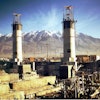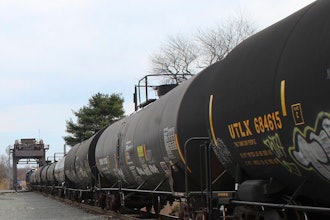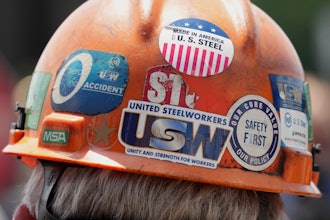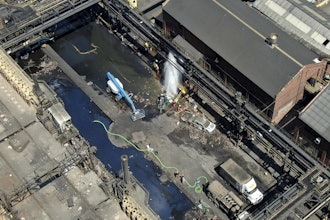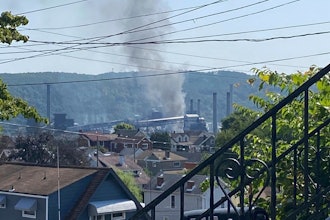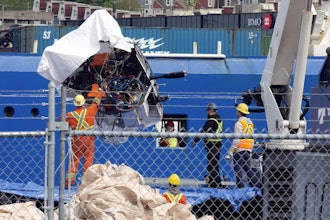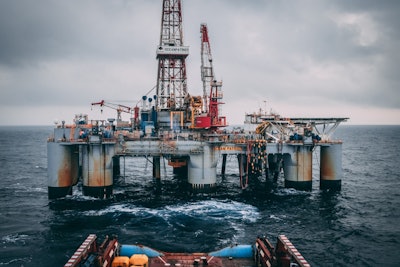
Whether you know the industry well already or you’re just starting to look for your way in, a career aboard a deep sea oil rig is equal parts exciting, lucrative and challenging. Many before you have sought a future in this field only to find they weren’t quite prepared for it. So what can you do to make sure your experience goes differently?
To begin with, it means starting out — and then making a point to remain — mindful of the very real risks you take by working on an oil rig. Once you’ve committed to this unique type of mindfulness and you’ve made common sense and safety a part of each day, you’ll find yourself prepared to face each challenge as it arises.
Here’s a quick rundown of what to expect and a quick refresher for some of the veterans out there on how to best each challenge as it comes your way.
Understanding and Maintaining Complex Equipment
Never let it be said that the oil and gas industry doesn’t require a cool head and a well-rounded skillset. Truth be told, the machinery on oil rigs is some of the most demanding equipment you’ll likely encounter in your lifetime. It has to be — it does work in one of the most difficult environments in the world.
Rising to this particular challenge means always insisting your knowledge is up to date. There are almost certainly certifications and training programs you are required to stay current with, but safety never ends with what’s mandatory. Make sure you’re testing yourself regularly even on the skills you think you already know well — and asking for help with the ones you don’t.
Above all, think of this as a shared responsibility where the team’s communal knowledge is only as strong as the weakest link.
Harsh Weather Conditions
There are few working environments less naturally hospitable for human life than the oil rig. A typical oil rig might rise 40 stories from the ocean, which places it directly in the way of some truly fearsome weather conditions.
Like many of the other entries on this list, this is a safety issue — one that requires constant attention to conditions as they change. Speaking more up close and personal, it also requires that you remain prepared on a personal level with things like clothing choices.
Know what you’re in for ahead of time and allot your admittedly limited personal space accordingly.
Pressure
Pressure of the literal and figurative variety are both very present aboard oil rigs.
The literal pressure that comes with drilling activities at depth — 2,000 feet, to be exact — is a danger itself. You work with some of the heaviest and most sophisticated equipment of its kind anywhere in the world and it’s designed to withstand extraordinary amounts of environmental stress.
The more figurative pressures come from governing and regulatory bodies. Given the relative frequency of accidents and environmental incidents that occur at sea aboard oil rigs — problems compounded by ocean pressures and a host of other environmental factors — regulations on the extraction of oil are justifiably tight.
Besting this particular challenge requires the understanding that you’re a small but important part of a very large operation that touches many lives and many miles of coastline. Climatic and regulatory pressures might change on a regular basis, but common sense does not.
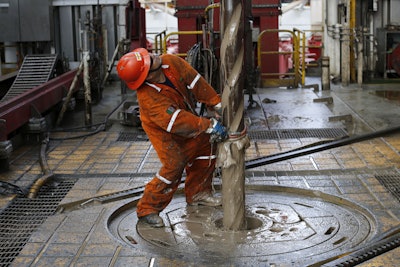
Risk of Fire
Fire is something of a worst-case scenario aboard oil rigs. Given the remote nature of the work and the distance to the nearest rescue and medical facilities, fires at sea can quickly grow out of hand and cost lives.
If you’re an industry insider yourself, you know the risk of fires is not taken lightly in any oil company’s culture. One thing they’re all likely to stress is that safety — including fire safety — begins with individuals and with small daily decisions.
Of course, accidents happen. Blowouts are a real threat and not always something you can account for. Given this and the other variety of risks aboard oil rigs, it makes good sense to continually familiarize yourself with emergency procedures. You need to fully understand what’s expected of you, in your position, when an emergency occurs.
Limited Communication
It’s true that folks who work on oil rigs for a living have to make do with limited communication with the outside world and forgo contact with friends and loved ones for extended periods of time. You have to know yourself and your limits, in advance, if you want to make it in this field.
Of course, the oil rig life does come with perks that help balance out some of the compromises. As others in the industry will attest, the months-long vacations easily help even homesick team members power through long working seasons. If these compromises and tradeoffs sound like a good fit for your personality, you might never look back.
Health Risks
No industry is without its share of risks and potential injuries. Whether you’re a veteran or still mulling a future in oil and gas, know that life aboard a deep sea oil rig carries perhaps more risks than your average career choice.
 Megan Ray Nichols, Freelance writer
Megan Ray Nichols, Freelance writerBeyond the limited communications and weather risks we mentioned above, the work itself is dirty and exhausting. You may already have learned to love the grit and intensity of physical labor, but don’t pursue this career if you haven’t made investments in your health already.
That all might sound like a lot to go up against, but no challenge is impossible to weather if you’re prepared. Making sure safety and team synergy are top of mind will go a long way toward keeping you safe as you best each one of these challenges.
Megan Ray Nichols is a freelance STEM writer and blogger whose work has appeared on Manufacturing Business Technology, American Machinist, and IoT Evolution. Read more posts by Megan on her blog, Schooled By Science, and follow her on Twitter @nicholsrmegan.


